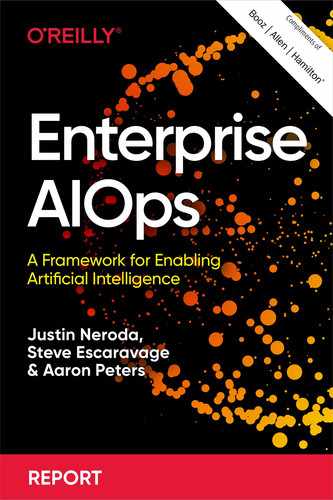The mountains of data generated on a daily basis has vastly outstripped growth in the supply of technical analysts. How can your organization provide value from these data volumes with your existing analytical capabilities and staff? With this report, business leaders looking to move from small AI pilot projects to an enterprise-wide deployment will explore an AI operations engineering framework known as AIOps. Justin Neroda, Steve Escaravage, and Aaron Peters from Booz Allen Hamilton show you how to use this framework to develop AI tools, understand the importance of data management, and determine team roles and responsibilities. You'll learn how to unlock the incredible potential that lies within your organization's significantly growing data, deriving insights not obtainable just a few years ago.
